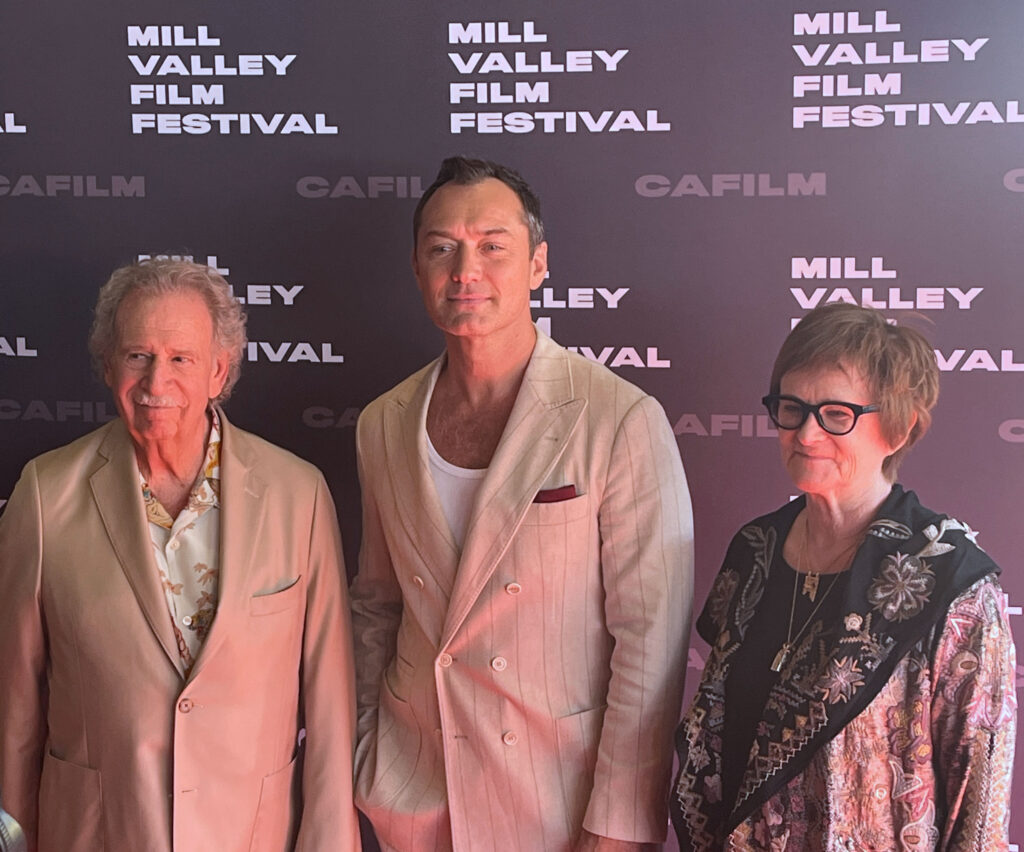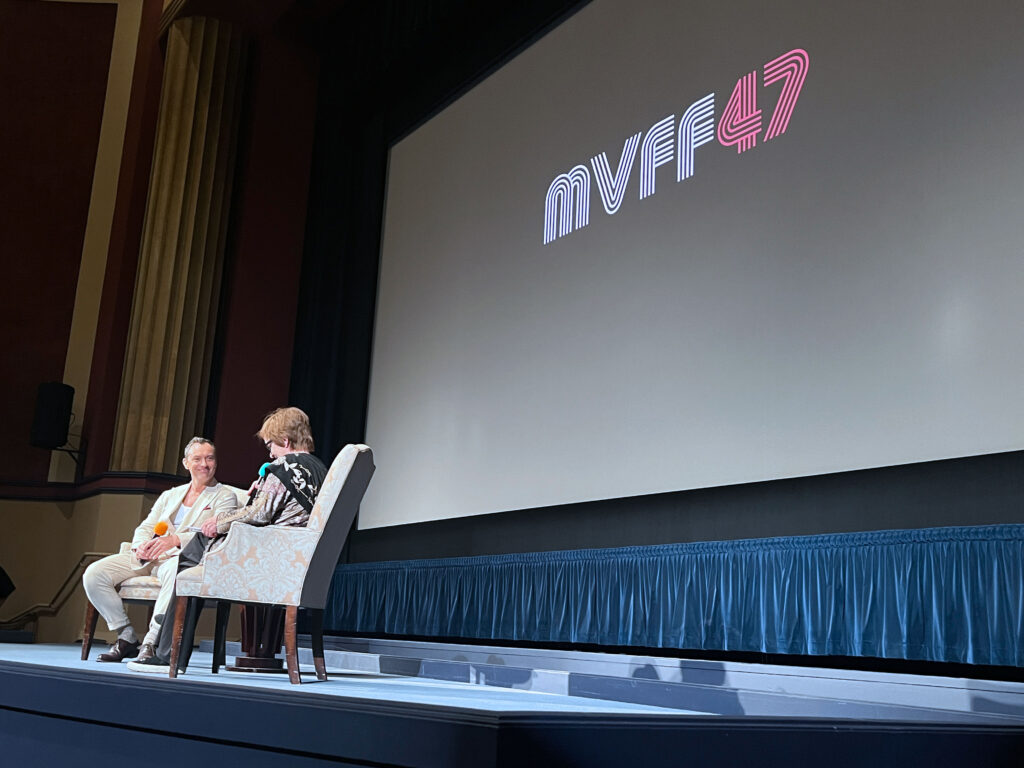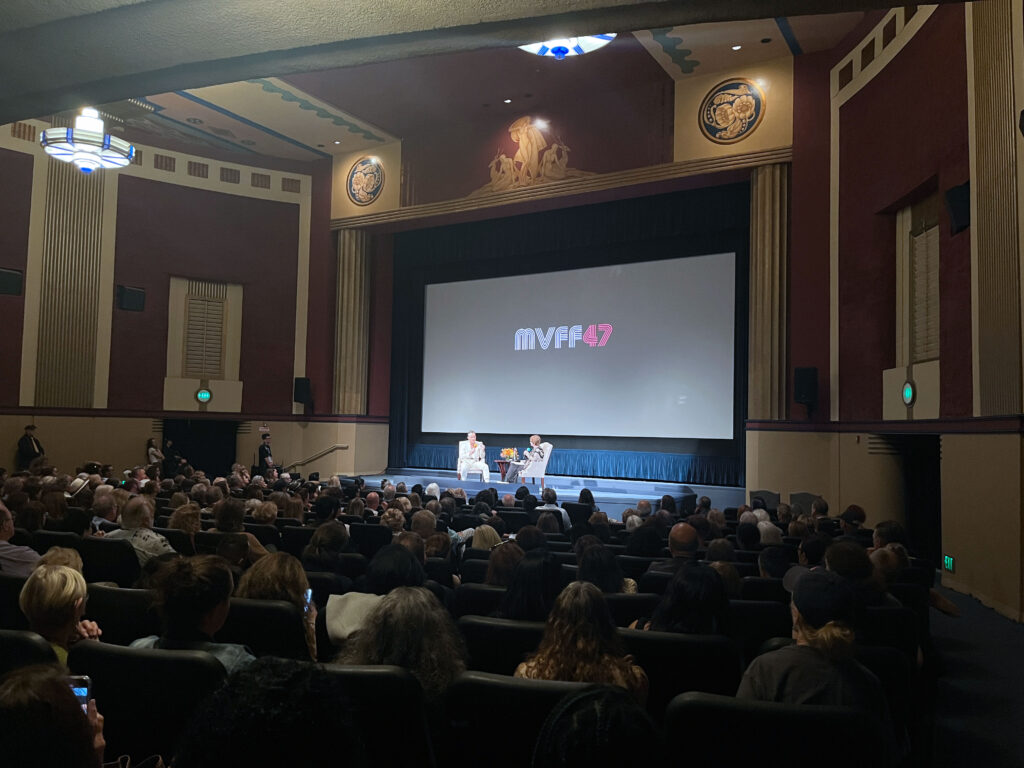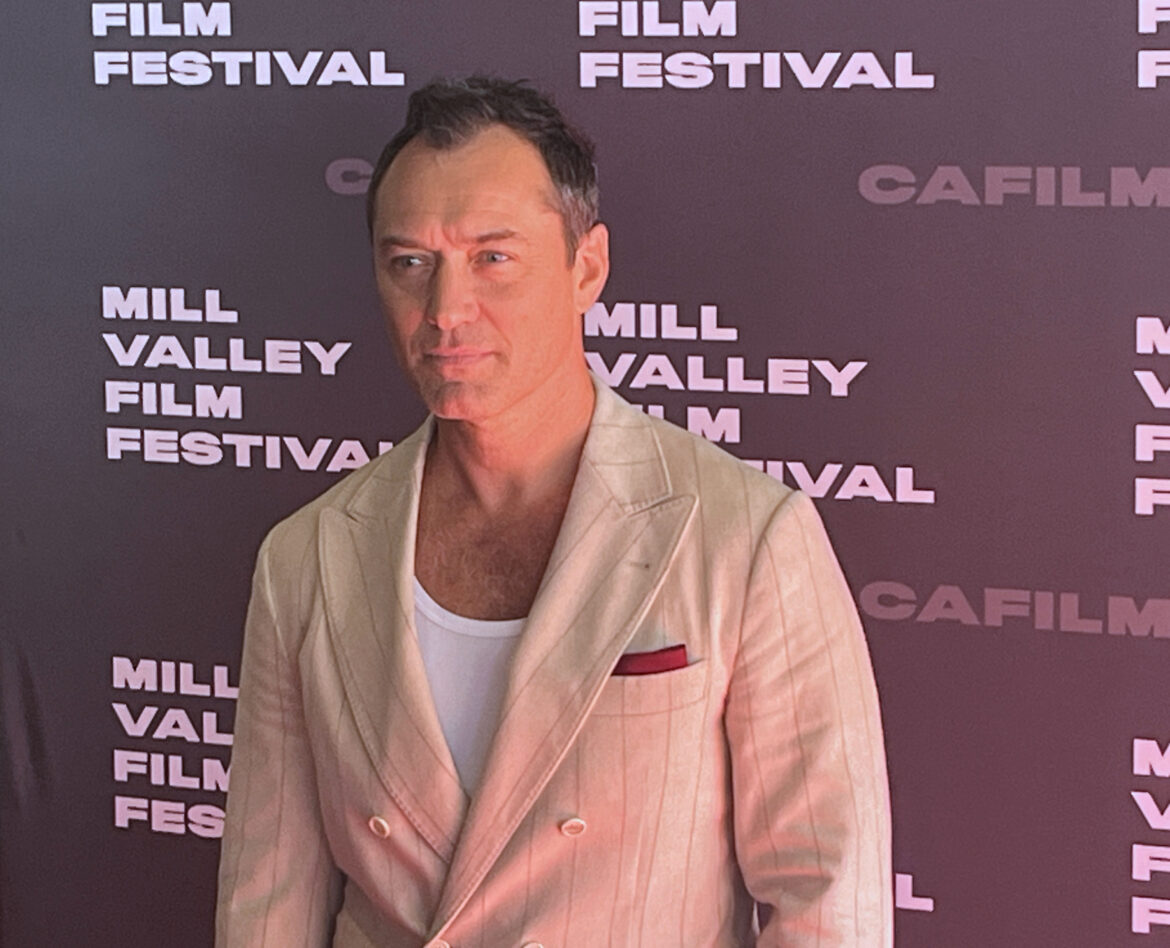By Kirsten Coachman
If you ask him, Jude Law will tell you that he’s someone who tends to look ahead. As the subject of this year’s tribute event at the 47th Mill Valley Film Festival (MVFF), he was given the opportunity to reflect on his prolific acting career on Sunday, Oct. 13. Being honored for his work at this stage of his career is something that makes the actor admittedly “quite emotional.”
“It’s thrilling and obviously incredibly joyful. And also baffling,” Law told Art U News on the MVFF red carpet. “Makes me think an awful lot about the good folk I’ve worked with. It’s such a collaborative art form. And so looking back over all those people and all their contributions to my work is really quite moving. I’m also very English and modest and don’t really like the kind of attention particularly, but to be recognized in a festival like this, which to me is the real sort of frontline of film passion, film fans, it really means something.”
The actor’s rich filmography boasts standout performances in films like “Gattaca” (1997); “The Talented Mr. Ripley” (1999), of which Law won a BAFTA for Best Actor in a Supporting Role and was also nominated for an Oscar; “A.I. Artificial Intelligence” (2001); “Cold Mountain” (2003), which garnered a second Oscar nomination; “Closer” (2004); “The Holiday” (2006); as well the “Sherlock Holmes” (2009/2011) and “Fantastic Beasts” (2018/2022) franchises.

Now, 30-plus years into his film acting career, Law remains inspired by the work he still wants to do and remarked on how the passage of time can factor into a role.
“Interestingly, getting older means that you can approach your parts in a different way,” the actor said. “You can suddenly add the years that you’ve experienced yourself onto the roles you play. And that’s kind of an interesting new perspective.”
Law’s newest film, “The Order,” directed by Justin Kurzel, screened during this year’s festival. Also starring Nicholas Hoult, Tye Sheridan, and Jurnee Smollett, the film—based on a true story—follows a series of bank robberies and bombings in the Pacific Northwest in the early 1980s that are at the center of an FBI agent’s investigation of domestic terrorism in the region.
As part of the MVFF Tribute, Law sat down with Director of Programming Zoë Elton for an hour-long conversation at the Smith Rafael Film Center. While discussing “Gattaca,” Law revealed that his first trip to the Bay Area was during a road trip with co-star Ethan Hawke to film at the Frank Lloyd Wright Civic Center in Marin County.

“We were based in Los Angeles—it was the first film I made there. And Ethan Hawke and I really hit it off. And then we had to move production up here to shoot there. And we decided to drive up, which I don’t think the producers were very happy with,” Law shared. “I guess they wanted to keep us all contained and keep an eye on us. And Ethan and I were like, ‘We’ll be fine.’ It was a wonderful bonding experience and my first experience of driving up that amazing coastal highway and then coming up and into the city here. Very formative memory of mine.”
Over the years, Law has demonstrated his dynamic versatility through various cinematic genres. This year alone, he can be seen in the historical drama “Firebrand” and the upcoming thriller “Eden.” In December, he’ll join the ultimate sci-fi/adventure franchise in the episodic “Star Wars: Skeleton Crew.” As the actor explained to Elton and the audience, these choices throughout his career have been by design.
“[I]t’s been absolutely intentional,” said Law, sharing that he was inspired by the careers of actors such as Robert De Niro, Al Pacino, Gary Oldman, and Daniel Day-Lewis. “I remember seeing Daniel Day-Lewis in ‘My Beautiful Laundrette’ and then ‘A Room with a View,’ and I couldn’t believe it was the same man. And just the opportunity to disappear into roles like that was one of the big reasons, one of the big pulls of being an actor, certainly in film. And the challenge of doing that.”
He further elaborated: “I look back, and I think I gave myself, emotionally, too much of a hard time when I was younger; really feeling that I just wanted to go against the grain and not lean into looks and not play. I mean, I took it really seriously. It was a sort of insecurity, probably more that I just wanted to prove myself as an actor. Great ac-tor. I wrote quite hard over myself in order to achieve that. But looking back, it was instrumental in choosing roles, not repeating oneself, trying to find something that was very different.”

Among the topics discussed that afternoon, including which director Law would like to work with again—Steven Spielberg was top of mind—the actor was asked about his preparation for playing a real-life person, such as Lord Alfred “Bosie” Douglas in “Wilde” (1997), when they’re known to be “a nasty piece of work.”
Law said that you can’t approach the character with the mindset of being the bad guy; the key is to do the work to figure out why that character behaves the way that they do. “So you go right back to the beginning, childhood and how they’ve been treated, what they’re trying to prove,” he explained.
However, the actor prefaced his comments by noting that his process wasn’t always as well defined.
“I was doing an awful lot of it on a wish and a prayer and sort of relying an awful lot on what I thought I could do, but not really knowing how to build a character,” said Law. “I look back on some of my early work, and I’m always a bit like, ‘How did I get away with it?’ And it was only over time watching other actors that I learned how to build a character, and now it’s the part I love the most, really, the preparation.”
